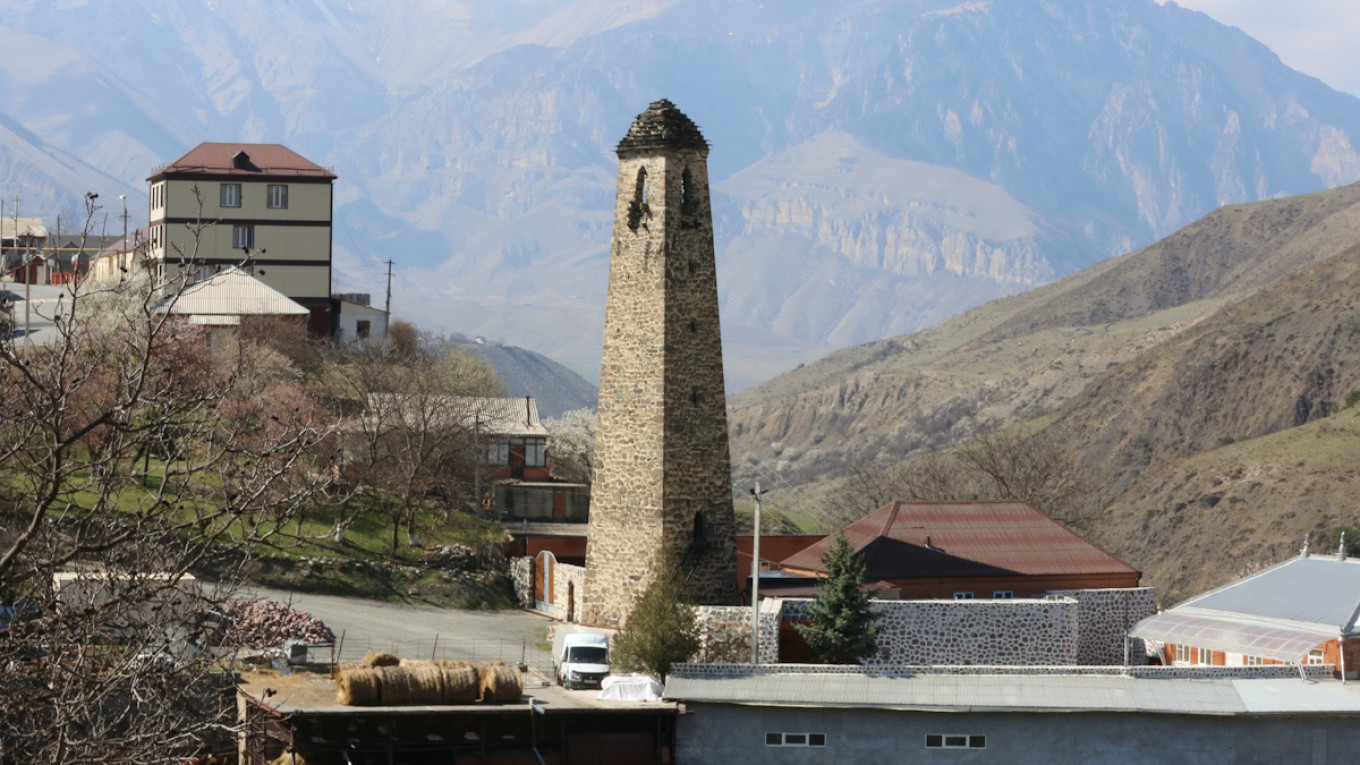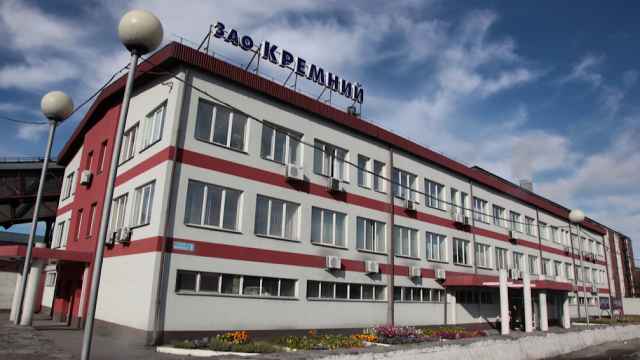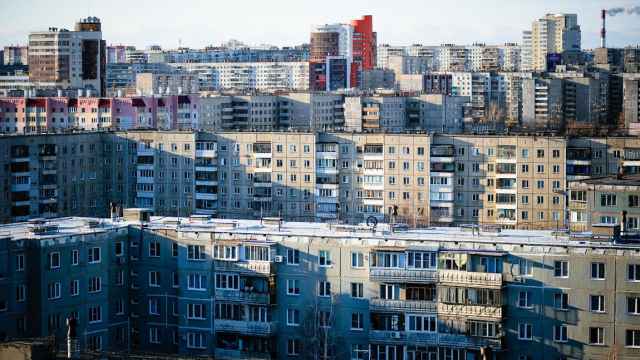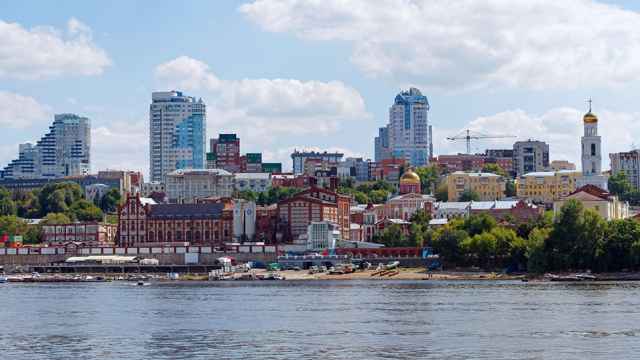Russia’s southern region of Ingushetia is about to become the first ever region in the country to go bankrupt, independent newspaper Novaya Gazeta reported Wednesday.
The region’s debt has soared to 125% of its annual income thanks to spiralling costs incurred by tackling the coronavirus pandemic.
Russia’s regions are running out of money and the country is facing another regional debt crisis. While the federal government makes plenty of money from duties on the exports of raw materials and oil, the regions have to rely solely on personal income and corporate profit taxes for their revenue, as well as subsidies from Moscow.
“Formally, there is a [procedure for declaring insolvency] which can be applied, in accordance with our budget code, if the region has overdue debt in the amount of more than 30% of its own tax and non-tax revenues. It is quite probable that such a state of affairs has arrived in Ingushetia,” said Vladimir Klimov, director of the Russian Presidential Academy of National Economy and Public Administration (RANEPA)’s Regional Policy Center, as cited by Novaya Gazeta.
Ingushetia may be the first to fall, but “there will be plenty in the coming months,” Novaya Gazeta said.
The tiny autonomous republic in Russia’s North Caucasus has now been added to the list of “red” regions in the Finance Ministry’s traffic light grading system, which means it falls under “manual control” — when Moscow takes direct control of debt management.
Ingushetia’s public debt has ballooned by around 64% this year and now stands at almost 125% of planned annual budget revenue, Novaya Gazeta said.
The terrible state of Ingushetia’s finances is despite the fact that it was already one of the most subsidized regions in Russia, with federal funds accounting for 80% of its revenue.
Regional debt crisis
Russia’s regions had a near-miss debt crisis around 2016 when they started to run-up big bills thanks to Russian President Vladimir Putin’s so-called May Decrees which dramatically lifted the cost of things like teachers’ and doctors' wages, while at the same time the Finance Ministry sharply cut subsidies to the regions as it was struggling to fill a two trillion ruble ($26 billion) budget hole.
A similar thing is going on this year, as all of Russia’s regions have been hit by sharply inflated healthcare costs as they scramble to beef up public services in the face of the coronavirus pandemic. At the same time, they are seeing revenues tumble as unemployment has doubled and the economy contracts sharply.
The pandemic is expected to create a 830 billion ruble ($10 billion) deficit in Russian regional budgets in 2020, according to Gazprombank. And to make things worse, despite the growing second wave of infections, the Kremlin actually plans to decrease federal budget transfers six-fold next year, according to draft budget plans.
As a result, almost all regions will start running budget deficits and be forced to turn to more expensive loans from Russia’s commercial banks. Russia’s economy is supposed to return to growth next year after contracting by 4.1% in 2020, according to the recently improved World Bank forecast, so the regions can grow their way out of debt — but that assumes life returns to normal next year.
“The federal government has transferred 2.1 trillion rubles ($28 billion) in the first eight months of the year to the regions, which is 700 billion ($9 billion) more than in the same period a year earlier. And there is another 100 billion rubles ($1.3 billion) still to be transferred by the end of the year,” Andras Toth-Czifra said in a recent paper published by the Institute of Modern Russia.
In addition, the Finance Ministry just relaxed rules precluding the regions from taking more expensive commercial bank loans, although the level of this borrowing is capped. Overall, total commercial borrowing available to all Russian regions is only 74 billion rubles ($970 million) — a very small amount when set against the federal subsidies, but a little more than the estimate of the combined regional deficits. That means the Finance Ministry is not leaving much wiggle room in its calculations.
And it appears the Kremlin is serious about making the regions stick to their budget forecasts, as the authorities may soon implement bankruptcy mechanisms in other regions that are already in trouble. Some of the worst are Khakassia, Mordovia, Pskov, Oryol, Smolensk and Kurgan, according to Novaya Gazeta. Transfers from the federal budget will not be enough to fill all the gaps in these regions’ budgets, it said.
The situation in Khakassia and Mordovia is so bad that the Finance Ministry has already taken both of these regions under manual control as well.
Austerity
The problem is not the lack of money. The problem is the Kremlin is refusing to spend it. Over the last four years the government has built up a huge cash pile of almost $600 billion in reserves — of which $172 billion is in the National Welfare Fund (NWF), or about 9% of GDP.
Former Finance Minister and Audit Chamber head Alexei Kudrin recently criticized the Kremlin for not releasing more of this money to help the country weather the coronavirus storm.
“The fund was set up to accumulate proceeds from high oil prices so that it could be used in difficult times,” Kudrin, who was finance minister until 2011 told Bloomberg. “A pandemic is exactly that kind of situation.”
Putin brushed off Kudrin’s criticism again when asked about it during the annual VTB Bank investor conference Oct. 29, saying any increases in spending would be done “very carefully” in order not to run down the country’s foreign exchange reserves. Unlike other major economies, “we can’t just hold out our hand for more money,” he said.
The Kremlin claims it has earmarked an extra 9% of GDP to stimulate the economy this year, but economists say that much of that spending was already committed and has just been reassigned to things like the social sphere. The actual amount of new cash the Kremlin has promised is closer to 3%, which is one of the lowest levels in the world. Some developed countries are spending in the double digits to keep their economies afloat.
The Kremlin is very reluctant to release more money to help bolster the economy, as Putin is keen to maintain the “fiscal fortress” of reserves that has been built up since 2016.
The Kremlin has chosen austerity over prosperity as a result, as it sees these reserves as a strategic weapon in an economic war it is fighting with the U.S.
Indeed, that war could be about to escalate. Incoming U.S. President Joe Biden is widely seen as a hawk on Russia and the U.S. government is already talking about imposing new sanctions on the Nord Stream 2 gas pipeline, which only adds to the Kremlin’s reluctance to dig into its rainy day fund.
This article first appeared on bne IntelliNews. Follow on Twitter @bneIntelliNews.
A Message from The Moscow Times:
Dear readers,
We are facing unprecedented challenges. Russia's Prosecutor General's Office has designated The Moscow Times as an "undesirable" organization, criminalizing our work and putting our staff at risk of prosecution. This follows our earlier unjust labeling as a "foreign agent."
These actions are direct attempts to silence independent journalism in Russia. The authorities claim our work "discredits the decisions of the Russian leadership." We see things differently: we strive to provide accurate, unbiased reporting on Russia.
We, the journalists of The Moscow Times, refuse to be silenced. But to continue our work, we need your help.
Your support, no matter how small, makes a world of difference. If you can, please support us monthly starting from just $2. It's quick to set up, and every contribution makes a significant impact.
By supporting The Moscow Times, you're defending open, independent journalism in the face of repression. Thank you for standing with us.
Remind me later.







